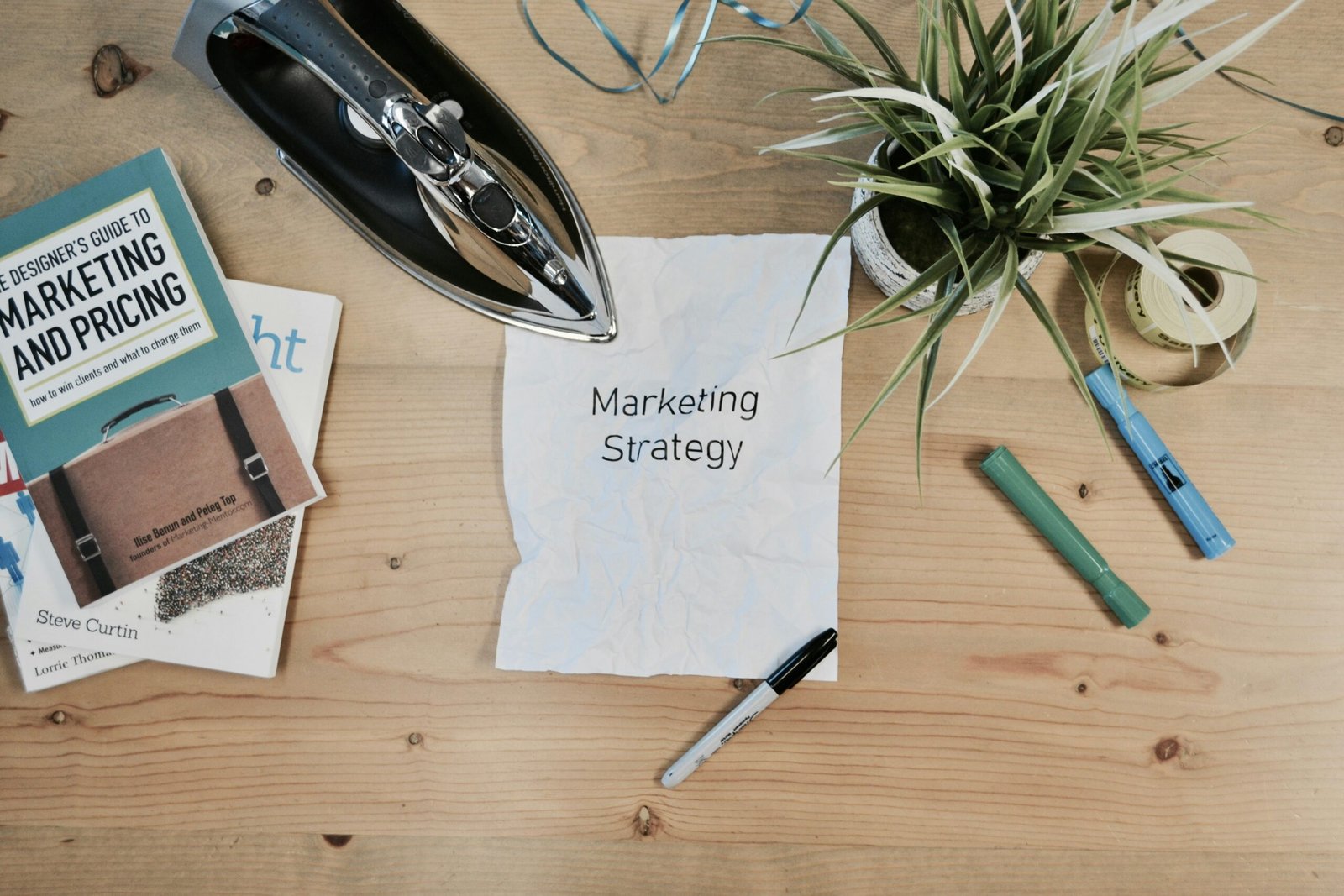Introduction: The Myth of Complex Marketing
In the modern business landscape, the prevalent belief is that effective lead generation demands intricate strategies and relentless manual effort. Many business owners and marketers find themselves overwhelmed by the sheer complexity of traditional marketing methods. However, this perception is far from accurate. The advent of advanced technology and automation tools has revolutionized the marketing sphere, debunking the myth that successful lead generation must be complicated and labor-intensive.
Enter the concept of ‘lazy’ marketing—a streamlined approach that leverages automation to amplify your marketing efforts without necessitating constant manual input. This innovative method harnesses the power of modern tools and software to handle repetitive tasks, allowing marketers to focus on strategic planning and creative endeavors. By integrating automation into your marketing strategy, you can efficiently manage and nurture leads, ensuring a consistent flow of potential clients without the need for extensive hands-on involvement.
Today’s marketing automation platforms offer a plethora of features designed to simplify and enhance the lead generation process. From email marketing campaigns and social media scheduling to customer relationship management (CRM) and analytics, these tools provide a comprehensive solution for businesses of all sizes. Whether you’re a small startup or a large enterprise, automation can help you scale your efforts, reach a wider audience, and convert prospects into loyal customers with minimal effort.
Moreover, the accessibility of these tools means that businesses no longer need extensive technical expertise or substantial budgets to implement effective marketing strategies. With user-friendly interfaces and affordable pricing models, automation technology has democratized the marketing landscape, making it feasible for anyone to harness its benefits. By embracing ‘lazy’ marketing, you can achieve remarkable results in lead generation while conserving time and resources—proving that simplicity can indeed lead to success.
Harnessing the Power of Automation
Automation has become a cornerstone in modern marketing strategies, offering a transformative approach to lead generation. By leveraging automation tools, marketers can streamline their efforts, ensuring consistency and scalability without the need for constant manual intervention. Several types of automation tools are particularly effective in this regard, each serving a unique purpose in the marketing ecosystem.
Email marketing platforms, such as Mailchimp and Constant Contact, allow businesses to craft personalized email campaigns that nurture leads through tailored content. These platforms enable segmentation of audiences based on various criteria, ensuring that the right message reaches the right person at the optimal time. Automated workflows and drip campaigns can guide prospects through the sales funnel, enhancing engagement and conversion rates.
Customer Relationship Management (CRM) systems, like Salesforce and HubSpot, play a crucial role in managing and analyzing customer interactions and data. These systems automate the tracking of customer behavior, sales activities, and follow-ups, providing valuable insights that can inform marketing strategies. Integrating CRM with other marketing tools can create a unified view of customer journeys, enabling more targeted and effective campaigns.
Social media schedulers, such as Hootsuite and Buffer, simplify the process of maintaining a consistent social media presence. These tools allow marketers to plan and schedule posts across multiple platforms in advance, ensuring a steady stream of content without the daily hassle. Automated social media management helps in keeping audience engagement high and can drive traffic to landing pages or other lead generation assets.
The integration of these automation tools can result in a seamless lead generation machine. For instance, syncing an email marketing platform with a CRM system ensures that all lead interactions are automatically recorded and analyzed, enabling more personalized follow-ups. Similarly, linking social media schedulers with CRM data can help in crafting posts that resonate with specific audience segments.
The benefits of automation in marketing are manifold. Time savings is a significant advantage, as automated processes reduce the need for repetitive tasks, allowing marketers to focus on strategic initiatives. Consistency is another key benefit, ensuring that messaging remains uniform across various channels. Lastly, scalability is greatly enhanced, as automation enables marketers to handle an increasing volume of leads without proportionally increasing effort or resources.
Strategies for Maximizing Lead Generation
Maximizing lead generation through automation can significantly enhance your marketing efficiency while reducing manual efforts. One of the most effective strategies is setting up automated email campaigns. By leveraging segmentation and personalization, automated emails can deliver tailored content directly to the right audience, nurturing leads through the sales funnel. Utilize tools that allow you to create drip campaigns, where a series of pre-scheduled emails are sent based on user actions or time intervals, ensuring consistent engagement with potential customers.
Another essential strategy is incorporating chatbots for instant customer interaction. Chatbots can handle a variety of tasks, from answering frequently asked questions to qualifying leads and scheduling appointments. Integrating chatbots on your website or social media platforms ensures that potential customers receive immediate responses, enhancing their user experience and increasing the likelihood of conversion. Advanced chatbots equipped with natural language processing (NLP) can even provide personalized interactions, further engaging your audience.
Employing AI-driven analytics is crucial for refining and targeting your marketing efforts. AI can analyze vast amounts of data to identify patterns and trends, enabling more accurate targeting and segmentation. This data-driven approach allows you to craft highly relevant marketing messages that resonate with your audience. Additionally, AI can predict customer behaviors and preferences, helping you to anticipate their needs and tailor your campaigns accordingly.
Creating compelling content is fundamental to driving engagement and maximizing lead generation. Focus on producing high-quality, relevant content that addresses the pain points and interests of your audience. Utilize a mix of blog posts, videos, infographics, and social media updates to keep your content diverse and appealing. Encourage interaction by asking questions, prompting discussions, and incorporating calls-to-action (CTAs) that guide your audience toward the next step in the conversion process.
Finally, the importance of testing and optimizing your automated processes cannot be overstated. Regularly monitor the performance of your email campaigns, chatbots, and AI-driven initiatives to identify areas for improvement. A/B testing different elements, such as subject lines, content formats, and CTAs, can provide valuable insights into what resonates best with your audience. Continuously refine your strategies based on these insights to ensure maximum efficiency and effectiveness in your lead generation efforts.
Focusing on What Matters Most
In the fast-paced world of marketing, automation stands as a powerful ally, enabling marketers to transcend mundane, repetitive tasks and focus on high-level strategic activities. By automating routine processes such as email campaigns, social media updates, and data analysis, marketers free up valuable time to invest in creativity, relationship-building, and strategic planning—key elements that drive long-term growth and business success.
Creativity is the cornerstone of effective marketing. When marketers are not bogged down by time-consuming activities, they can channel their energy into crafting compelling content, designing innovative campaigns, and exploring new marketing channels. This creative freedom not only enhances the quality of marketing efforts but also helps in differentiating the brand in a crowded marketplace.
Relationship-building is another critical aspect that benefits from automation. With more time at their disposal, marketers can foster stronger connections with their audience. Personalized communication, timely follow-ups, and engaging interactions become more manageable, leading to increased customer loyalty and retention. Building and nurturing these relationships is pivotal for sustaining long-term business growth.
Strategic planning, often sidelined due to the daily grind of marketing tasks, gains prominence with the advent of automation. Marketers can now dedicate more time to analyzing market trends, understanding customer behavior, and devising strategies that align with business objectives. This strategic approach ensures that marketing efforts are not only efficient but also effective in achieving desired outcomes.
By reallocating the time saved through automation to these high-impact activities, marketers can significantly enhance their productivity and drive substantial business growth. Embracing automation allows for a more relaxed yet highly productive approach to lead generation. It empowers marketers to focus on what truly matters, leading to more meaningful and successful marketing endeavors. https://bit.ly/3UUkPjE



